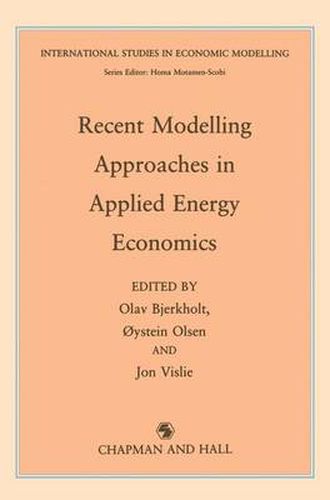Readings Newsletter
Become a Readings Member to make your shopping experience even easier.
Sign in or sign up for free!
You’re not far away from qualifying for FREE standard shipping within Australia
You’ve qualified for FREE standard shipping within Australia
The cart is loading…






This title is printed to order. This book may have been self-published. If so, we cannot guarantee the quality of the content. In the main most books will have gone through the editing process however some may not. We therefore suggest that you be aware of this before ordering this book. If in doubt check either the author or publisher’s details as we are unable to accept any returns unless they are faulty. Please contact us if you have any questions.
This collection of 13 articles on the European gas market and the management of national petroleum resources uses up-to-date information and advanced analytic techniques to investigate energy issues of considerable policy interest. The lead article is a sophisticated modelling analysis assessing the impact of the forthcoming deregulation of the gas market within the European Community. It is argued that deregulation invalidates earlier long-term forecasts of gas penetration and most likely will lead to an enhanced role of gas as a major energy source for households, industry and power generation. Deregulation will intensify the supply competition between USSR, Norway and Algeria. The potential residential demand for natural gas is estimated in a detailed analysis for four major European countries using advanced techniques of analysis. Other contributions focus on the game structure of the struggle over market shares in the European gas market and the role of negotiations and bargaining in a market with strong elements of vertical control. The environmental consequences of energy policies have become a matter of increasing concern. An early, perhaps the first, attempt to calculate the environmental effects of a transition from oil and coal to natural gas in Europe is presented. Several articles deal with problems of management of natural petroleum resources, in particular, from a Norwegian viewpoint. The studies reported, for example on how to measure the petroleum wealth as a part of a national wealth, and the methods developed for making energy decisions are of relevance for other countries. The book also touches upon the role of the independent oil exporting countries in the world oil market of the 1990s and the impact of oil price fluctuations on the international economy.
$9.00 standard shipping within Australia
FREE standard shipping within Australia for orders over $100.00
Express & International shipping calculated at checkout
This title is printed to order. This book may have been self-published. If so, we cannot guarantee the quality of the content. In the main most books will have gone through the editing process however some may not. We therefore suggest that you be aware of this before ordering this book. If in doubt check either the author or publisher’s details as we are unable to accept any returns unless they are faulty. Please contact us if you have any questions.
This collection of 13 articles on the European gas market and the management of national petroleum resources uses up-to-date information and advanced analytic techniques to investigate energy issues of considerable policy interest. The lead article is a sophisticated modelling analysis assessing the impact of the forthcoming deregulation of the gas market within the European Community. It is argued that deregulation invalidates earlier long-term forecasts of gas penetration and most likely will lead to an enhanced role of gas as a major energy source for households, industry and power generation. Deregulation will intensify the supply competition between USSR, Norway and Algeria. The potential residential demand for natural gas is estimated in a detailed analysis for four major European countries using advanced techniques of analysis. Other contributions focus on the game structure of the struggle over market shares in the European gas market and the role of negotiations and bargaining in a market with strong elements of vertical control. The environmental consequences of energy policies have become a matter of increasing concern. An early, perhaps the first, attempt to calculate the environmental effects of a transition from oil and coal to natural gas in Europe is presented. Several articles deal with problems of management of natural petroleum resources, in particular, from a Norwegian viewpoint. The studies reported, for example on how to measure the petroleum wealth as a part of a national wealth, and the methods developed for making energy decisions are of relevance for other countries. The book also touches upon the role of the independent oil exporting countries in the world oil market of the 1990s and the impact of oil price fluctuations on the international economy.